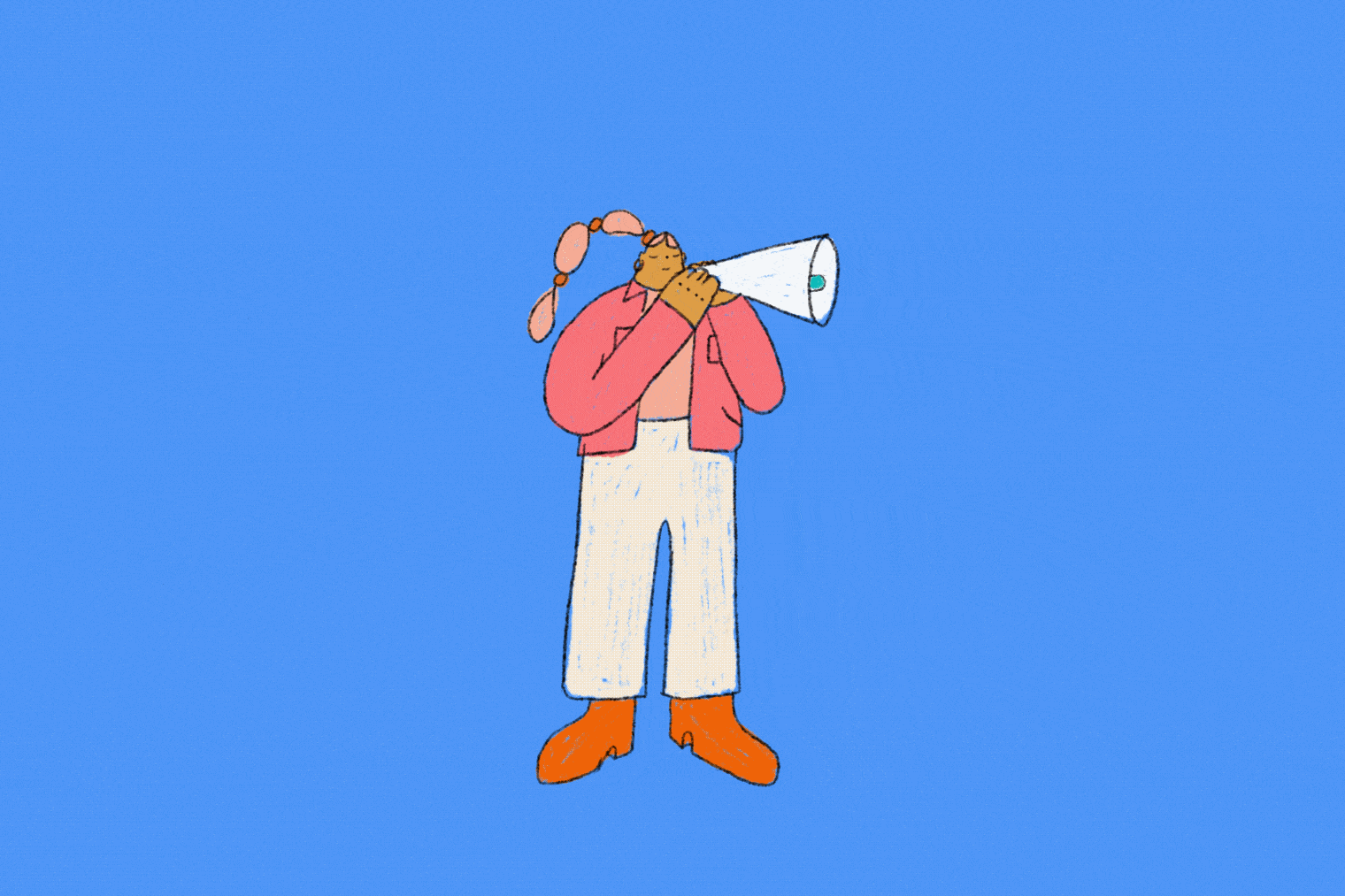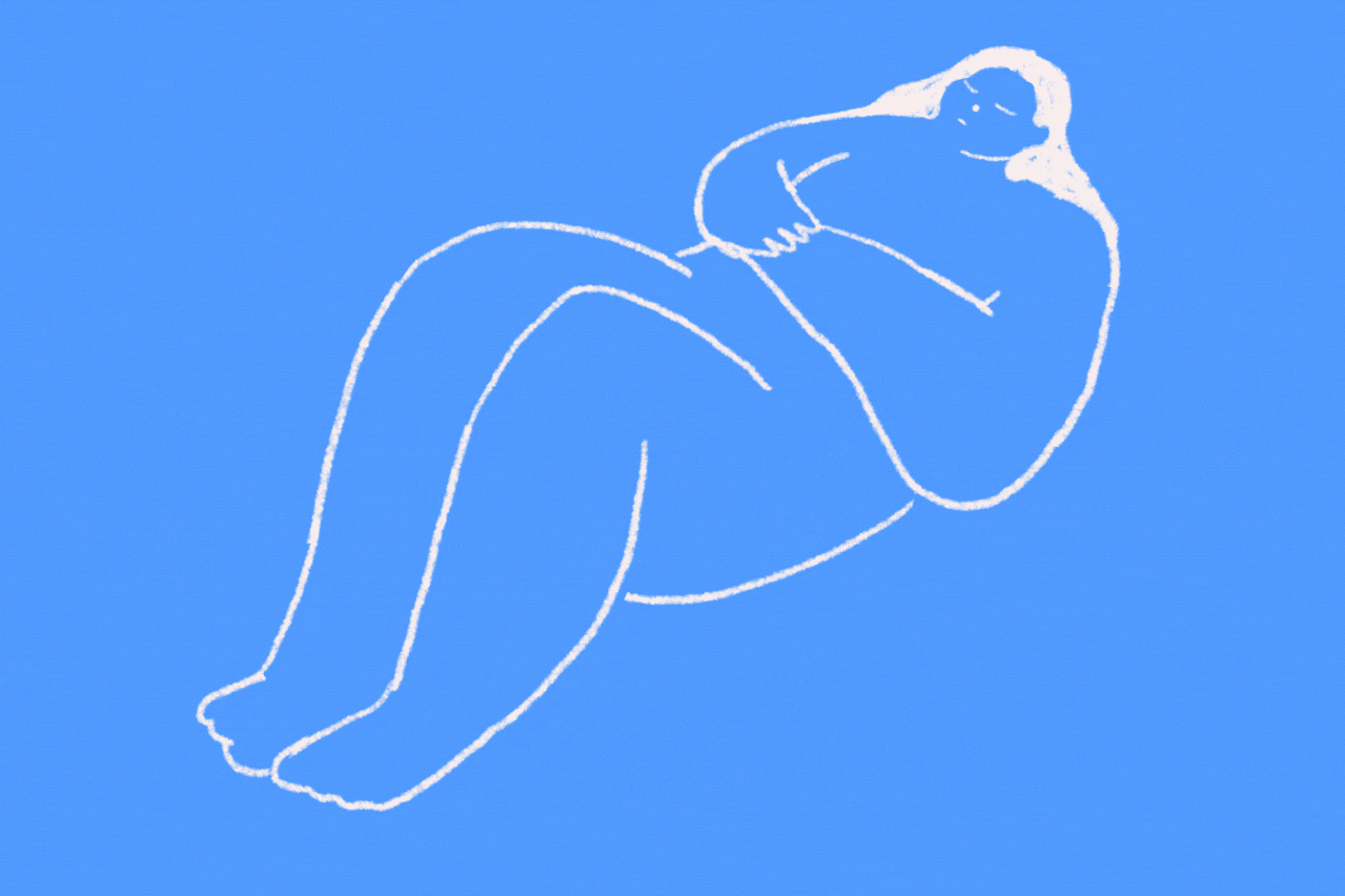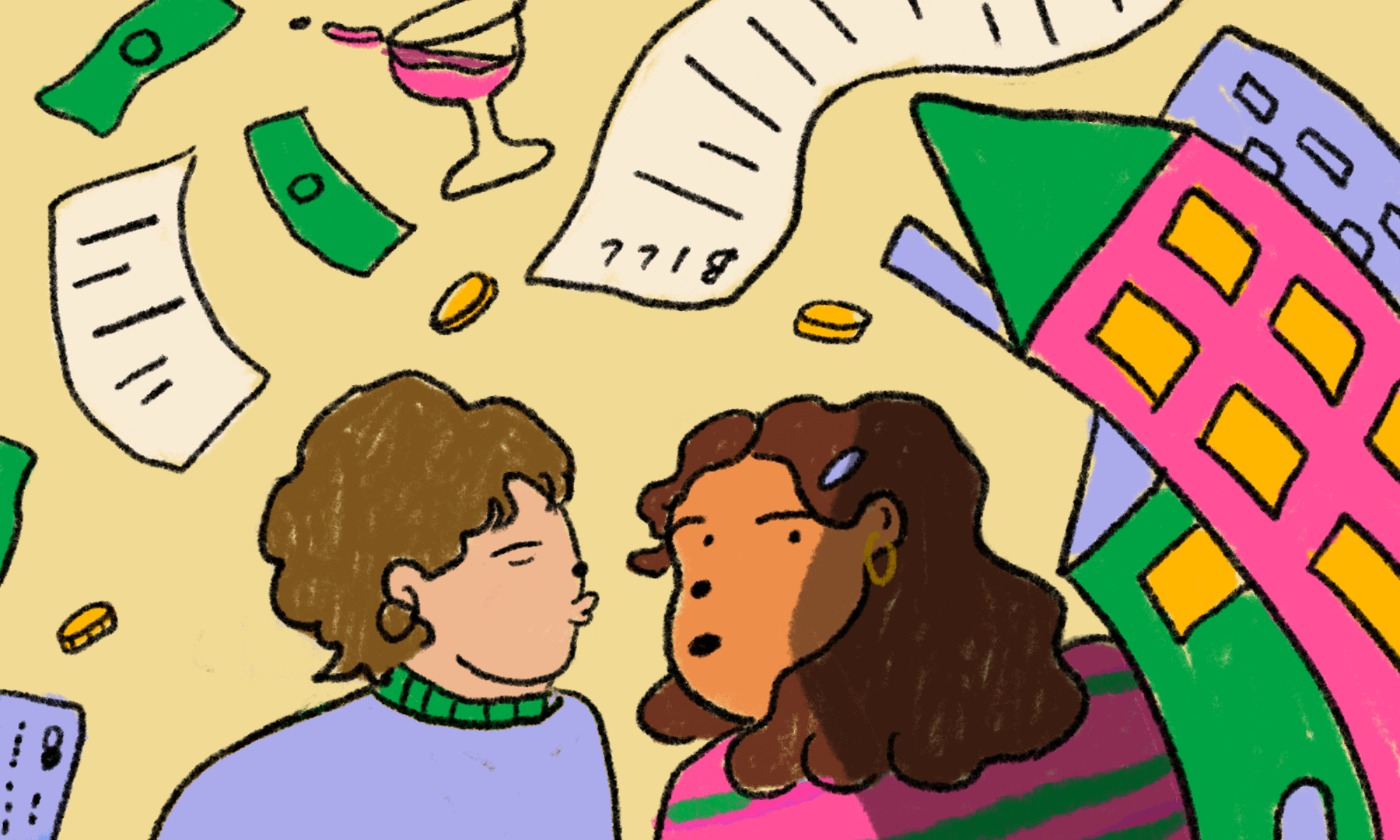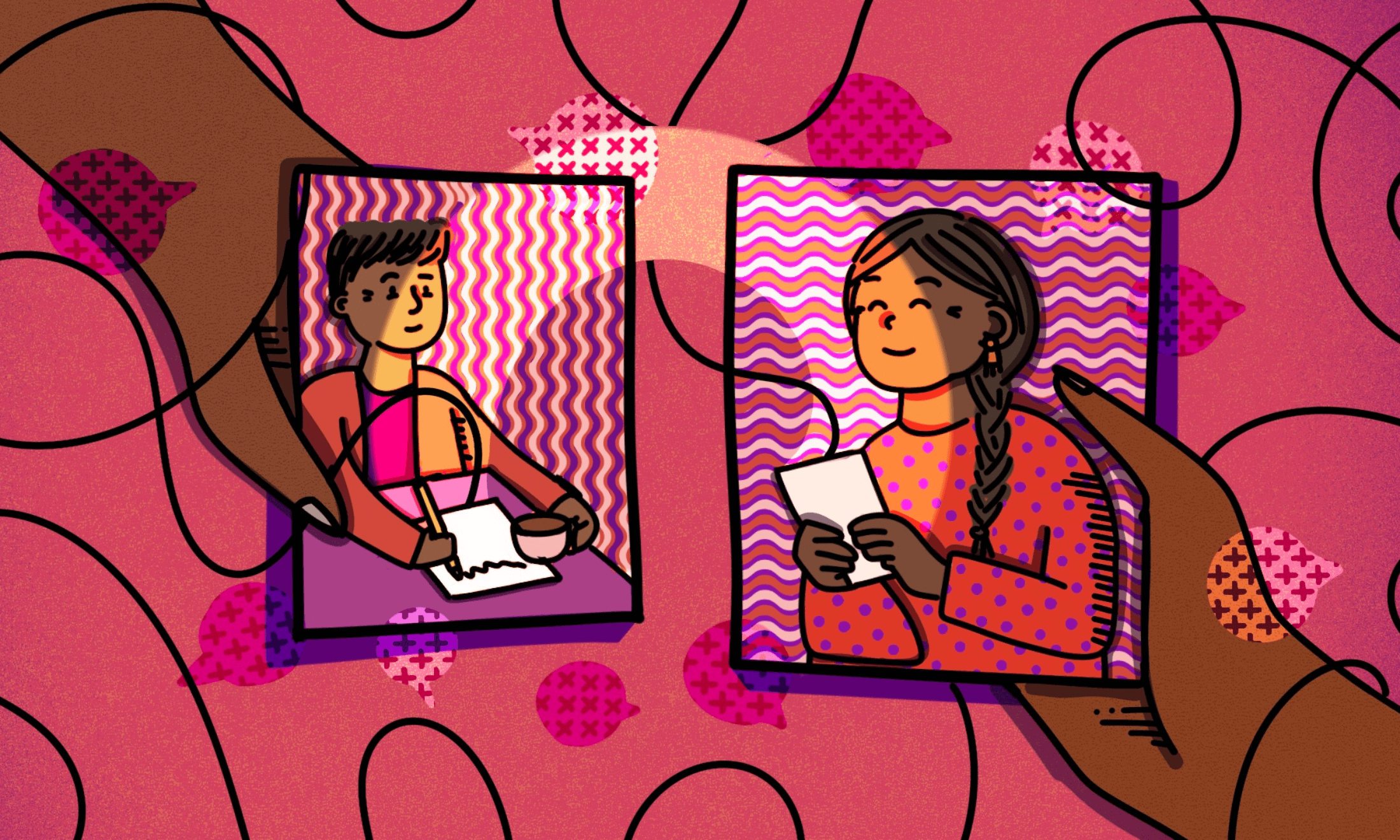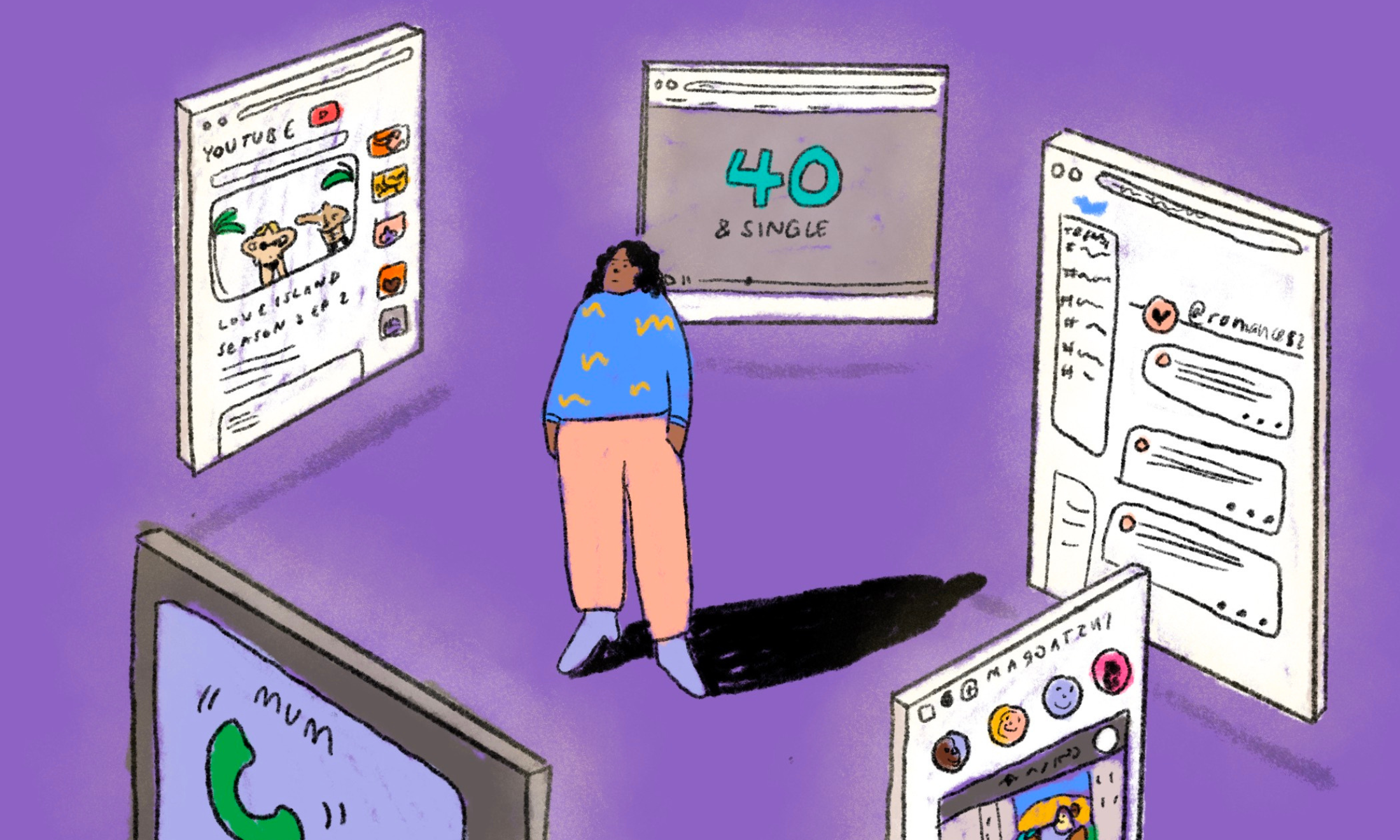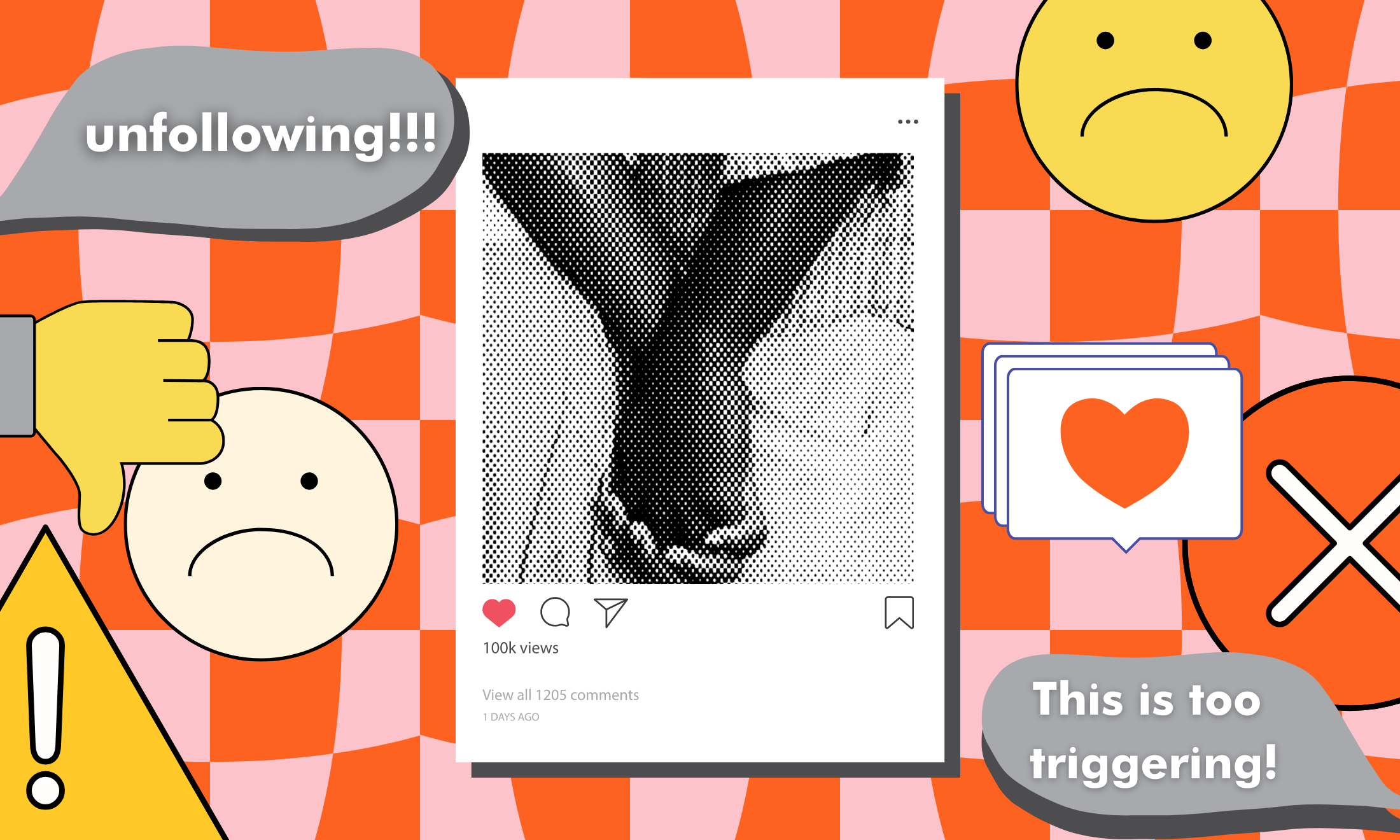
Canva
Why did people unfollow me once I posted my relationship on Instagram?
It’s okay for fat, black women to fall in love without a disclaimer.
Stephanie Yeboah
18 Jan 2022
On the morning of 11 January, I posted two pictures on Instagram. In the first one, I am being held by my partner as he gently kisses me on my forehead. In the second, I casually rest my chin on his shoulder. These photos are special to me, not just because they were taken in tender moments, this was also the first time I announced my relationship publicly. Something which beforehand, I had not even considered doing.
It was a joy to see so many people celebrate my announcement of love – the kind of love I had always yearned for from afar, but hadn’t experienced. However, what I didn’t expect was a gargantuan mass unfollowing, alongside messages from ex-followers claiming that my newfound happiness and joy was ‘triggering’ for them. That they could no longer relate to me due to this new relationship. That they enjoyed me more when I was miserable.
For me – a larger-fat, darker-skinned Ghanaian-British writer who advocates for fat bodies – chronicling the realities of my dating life has gone on to form a large part of my online identity. It’s no secret that I’ve been a bit of a late bloomer when it comes to dating and relationships, opening up on my blog and social media about dating failures, the fetishisation of bigger bodies, ghosting and general loneliness. For years, women all over the world existing in larger bodies have interacted with my stories by trading their own and telling me they could relate to my experiences, feelings and perspectives on the plights of dating while existing in a fat body.
“Ex-followers [claimed] that my newfound happiness and joy was ‘triggering’ for them”
In 2019, I created a Twitter thread, writing about the horrific ‘Pull a Pig’ experience I had gone through, where I had found out that a man I had been on a few dates with had only dated me to win a dare and prize money for sleeping with a fat woman. That post went viral, and I became inundated with emails and DMs from fat women all around the world who could relate to the humiliating experience.
Since then, men have insulted my appearance and used my body as the reason for not wanting to date me. I’ve been in situations where my withdrawn consent had not been acknowledged, due to being told that I should ‘feel lucky’ that I’m being slept with in the first place. I’ve been fetishised for my blackness and my fatness more times than I care to mention, broken up with because I was not the ‘right kind’ of curvy and have experienced feelings of low self-worth and self-hatred due to not being deemed ‘pretty’ enough to like or date.
These frequent tales of rejection, loneliness and honest perspectives became relatable to so many women going through the same woes. I took comfort in knowing that I wasn’t the only one to experience these feelings, but was equally infuriated about how many of us were going through them at the same time.
“There is something insidious about reaching out to someone you don’t know, to outline all the reasons why their happiness makes you uncomfortable”
Throughout the years, I had collected enough terrible dating experience to warrant walking the earth being eternally bitter and misanthropic. However, I would purposely follow fat, black women in relationships on Instagram because it made me joyous that there were women like me being loved in the ways we deserve. My heart ached to be in the same position one day.
Now I wonder if these women had also received the same kind of negativity I’ve been dealing with in the past week. If they too had essays written to them by their followers, essays about how their unapologetic happiness triggered others.
Jealous emotion about others experiencing joy can of course be valid; it’s something we’ve all felt at some stage or another. Equally, unfollowing online content that makes one feel ‘triggered’ is, in my opinion, also the correct path to take. Yet there is something insidious about reaching out to someone you don’t know, to outline all the reasons why their happiness makes you uncomfortable.
“To some extent, this was also about seeing a black woman happy and not being able to stand it”
“I’m glad that you’ve been able to find someone, but I’ll be honest in saying that I do find it a bit triggering and unrelatable”, read one message. “Damn, another one bites the dust lmaooo. I’ve been following you a long time but I don’t feel like I’d be able to relate to ‘relationship’ Steph. Single Steph >>>>>!!”, read another. I was disappointed to say the least.
I also couldn’t help but notice that every message I received was written by white women – some fat, some not – speaking of an issue that goes beyond the sheer entitlement of my joy. To some extent, this was also about seeing a black woman happy and not being able to stand it.
“Black women should be allowed to show and be shown softness, vulnerability, care and romantic love without having to give disclaimers”
It’s almost as though black advocates and creators online are expected to maintain a sense of misery and loneliness in order to make some white people feel better about theirs. This feels like yet another example of black people being required to lessen themselves in order to make some white people more comfortable; like we cannot be too happy, too loved-up, too soft, too feminine, too successful, because, by right, these are all entitlements we as black women should not have access to. And the racist undertones of the vast majority of messages I’ve received read as: ‘I took delight in following you because you are just as sad and as lonely as me. How dare you, as a black person, find happiness and access to love and joy before me?”
Only choosing to follow, support and be entertained by fat, black women when they are having a miserable time and suddenly rescinding the support when they find joy is a perfect example of partaking in black trauma porn. When we thrive, we no longer serve as trauma mules, thus others can no longer use our undesirability to make themselves feel better.
Fat women are deserving of love, black women are deserving of care and tenderness, and having the visibility to do so, and I am finally experiencing what it means to be loved wholly, loudly and unapologetically. Black women should be allowed to show and be shown softness, vulnerability, care and romantic love without it being politicised and without having to give disclaimers.

